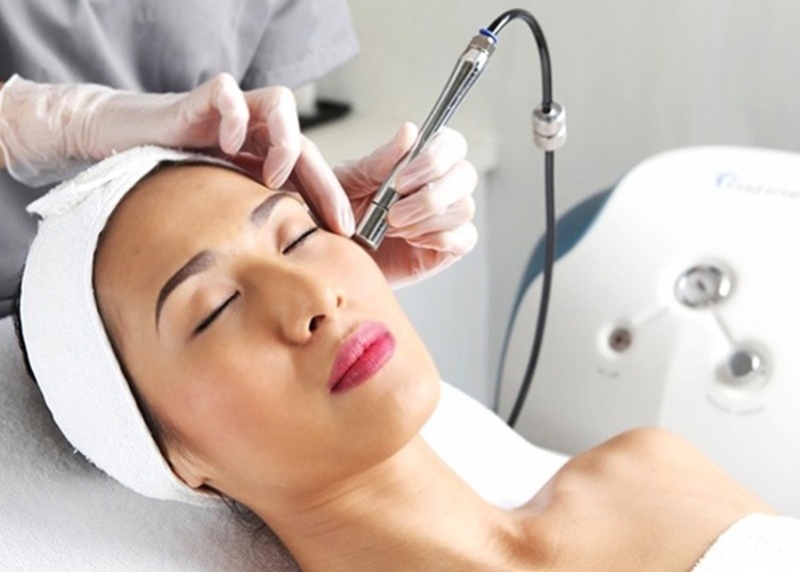The Dark Side of Full Body Whitening: What No One Talks About
While the beauty industry has seen significant evolution, the popularity of full body whitening treatment(عملية تبييض الجسم كامل) remains strong in many parts of the world. These treatments promise a uniform, lighter complexion, often marketed as the key to confidence and success. But beneath the glossy advertisements and celebrity endorsements lies a much darker truth—one often overlooked or ignored by mainstream media.
This article dives into the hidden costs, emotional tolls, and social consequences of whitening culture, exploring the side of the story that doesn't make it to the product label.

The Psychological Pressure to Lighten Skin:
Internalized Colorism and Cultural Messaging:
-
Many societies still associate lighter skin with beauty, wealth, and desirability
-
Cultural narratives often favor fair-skinned individuals in media and job markets
-
From childhood, individuals may receive subtle or overt messages that equate fairness with value
This creates a cycle of self-doubt and dissatisfaction with natural skin tone, often pushing individuals toward aggressive treatments for validation.
Emotional Impact on Self-Worth:
-
Repeated exposure to "light is better" ideals erodes confidence
-
Users often report anxiety, comparison, or body dysmorphia
-
Even after achieving lighter skin, many feel the pressure to maintain or go further
Skin care should empower, not make you feel like you're not enough. Unfortunately, many whitening campaigns prey on insecurity.
Unsafe Ingredients Still Found in Products:
What's Lurking in Some Whitening Products:
-
Mercury: a toxic element that can cause kidney damage, rashes, and neurological issues
-
Hydroquinone (in high doses): linked to ochronosis—a condition where skin darkens permanently
-
Steroids: often added illegally, can thin the skin and disrupt hormones
Despite growing awareness, many unregulated brands still use dangerous compounds, particularly in online or informal markets.
Lack of Regulation in Global Markets:
-
Some countries have poor enforcement on ingredient safety
-
Products from unverified sellers often bypass lab testing
-
Even creams labeled "herbal" may contain harmful chemicals hidden in small print
Consumers must be vigilant—what you apply daily can do irreversible damage over time.
The Long-Term Side Effects People Aren't Warned About:
Skin Damage and Sensitivity:
-
Thinning of the skin's natural barrier
-
Increased sensitivity to sun exposure, pollution, and allergens
-
Higher risk of inflammation, redness, and chronic irritation
Many whitening treatments work by suppressing melanin production. But melanin isn't your enemy—it's your skin's natural defense mechanism.
Dependency and Rebound Hyperpigmentation:
-
Once stopped, the skin may darken rapidly due to rebound melanin production
-
Prolonged use creates a dependency cycle—requiring stronger products to maintain results
-
Users often switch between products, increasing the chance of skin trauma
A treatment intended to enhance appearance can end up making skin worse if not managed correctly.
The Industry's Role in Fueling Whitening Obsession:
Marketing That Shames Rather Than Celebrates:
-
Ads subtly suggest darker skin is a "problem" that needs fixing
-
Celebrities are lightened in post-production, altering perceptions of beauty
-
Before-and-after comparisons often exaggerate results or use filters
These strategies reinforce unrealistic expectations and drive unnecessary treatment use.
Profit Over Ethics:
-
Whitening remains a billion-dollar industry, particularly in Asia, Africa, and the Middle East
-
Many brands capitalize on insecurities rather than educate on skin health
-
Ethical skincare brands are often drowned out by louder, profit-driven competitors
The truth? Glowing, healthy skin can exist at any shade—but it doesn't sell as fast as "whiteness in a jar."
The Social Divide It Reinforces:
Class and Skin Tone:
-
In many regions, lighter skin is tied to perceptions of wealth or higher status
-
Those who can afford whitening treatments may gain societal advantages
-
This reinforces class divides and encourages unhealthy competition
Whitening becomes not just a beauty choice—but a social currency.
Family and Peer Pressure:
-
Young individuals are often pressured by parents or partners to lighten their skin
-
Bridal expectations in some cultures still include "fair skin" as a requirement
-
Peer circles often subtly shame or joke about darker skin tones
This pressure can lead to long-term psychological distress and body image issues.
Alternatives That Promote Health, Not Just Lightness:
Safe Brightening Ingredients:
-
Niacinamide: evens tone and strengthens skin barrier
-
Vitamin C: boosts radiance and reduces discoloration gently
-
Licorice extract: naturally lightens dark spots without harsh chemicals
Choosing brightening over bleaching encourages skin clarity without compromising integrity.
Focus on Skin Health Over Color:
-
Hydration and exfoliation improve natural glow
-
Sunscreen prevents further pigmentation and maintains even tone
-
Embracing your undertone rather than changing your base tone creates confidence
Skincare should be about nourishment—not erasure.
How to Make More Informed Choices:
Read Labels Carefully:
-
Avoid products with mercury, steroids, or unlisted "brightening agents"
-
Look for dermatologically tested and approved formulations
-
Choose brands that disclose percentages of active ingredients
Knowledge is your best defense against hidden dangers.
Seek Guidance from Professionals:
-
Consult a dermatologist before starting any intensive whitening regime
-
Ask about safe treatments tailored to your skin type and condition
-
Avoid self-diagnosing or following influencer-based trends blindly
Professional insight ensures results without putting your health at risk.
Conclusion:
The dark side of full body whitening treatment(عملية تبييض الجسم كامل) is rarely discussed—but it's real, and it's harming more than just skin. From toxic ingredients to emotional damage and societal pressure, the hidden consequences deserve more attention.
In 2025, it's time to shift from outdated ideals to informed, empowered skincare. Your skin tells a story—one that shouldn't be erased to meet someone else's standard of beauty. Whether you choose to treat discoloration or embrace your natural glow, make that choice with awareness, safety, and self-respect.